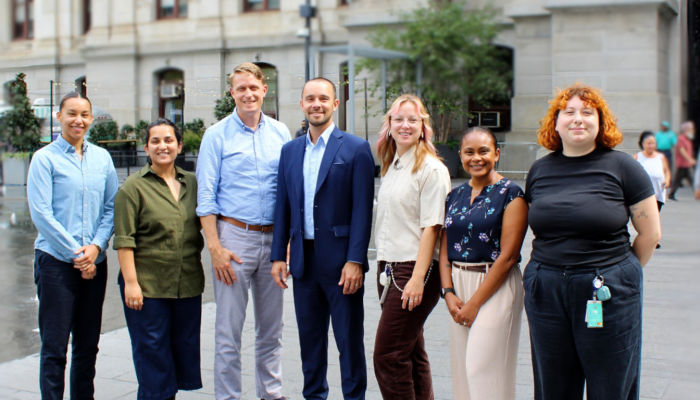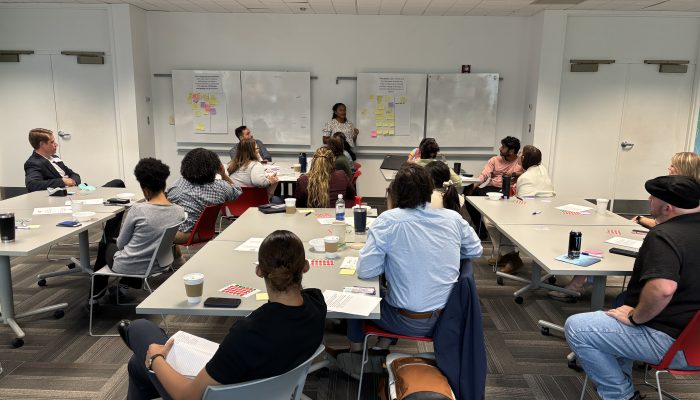Who we are
Have you ever wondered how new policy ideas become reality? Or perhaps you’ve thought of an exciting way to improve how the City of Philadelphia serves its residents and businesses?
Meet the Mayor’s Office of Policy Planning and Delivery (OPPD), a team who supports the implementation of select Mayoral policy initiatives and improves City service delivery. Our backgrounds and applied areas of expertise include:
- Program and project management
- Public policy and research
- Data analysis and evaluation
- Local government systems and operations
- Stakeholder management and cross-sector collaboration
We bring technical skills, collaborative problem-solving, and belief in the power of effective and people-centered government.
How we work
Our team provides project management, capacity, and support to help City partners and offices deliver on policy goals. We work with partners to rethink and simplify how the City delivers services by:
- Understanding the current process and challenges, informed by broad stakeholder input.
- Developing practical and actionable solutions to address these challenges.
- Supporting the implementation of the solutions, in close partnership with departmental colleagues.
We also act as a connector and catalyst across City government by:
- Hosting planning sessions and facilitated convenings.
- Coordinating cross-departmental efforts.
- Identifying Citywide opportunities for innovation and collective problem solving.
What we’ve been up to
On April 15, 2024, Mayor Parker signed the PHL Open for Business Executive Order 10-2024, which outlined the Administration’s commitment to a business-friendly government. A partnership between OPPD and the Commerce Department, the initiative looks to remove burdens and simplify City permits and licensing.
The Open for Business project team has completed five projects and currently has 16 projects underway. Some projects include:
- Developing inspection preparation materials and providing accessible online resources.
- Simplifying regulatory requirements and removing unnecessary licenses.
- Ensuring resources are available in multiple languages and piloting a Khmer food safety certification program.
- Improving interactions through customer feedback surveys and staff soft skills training.




